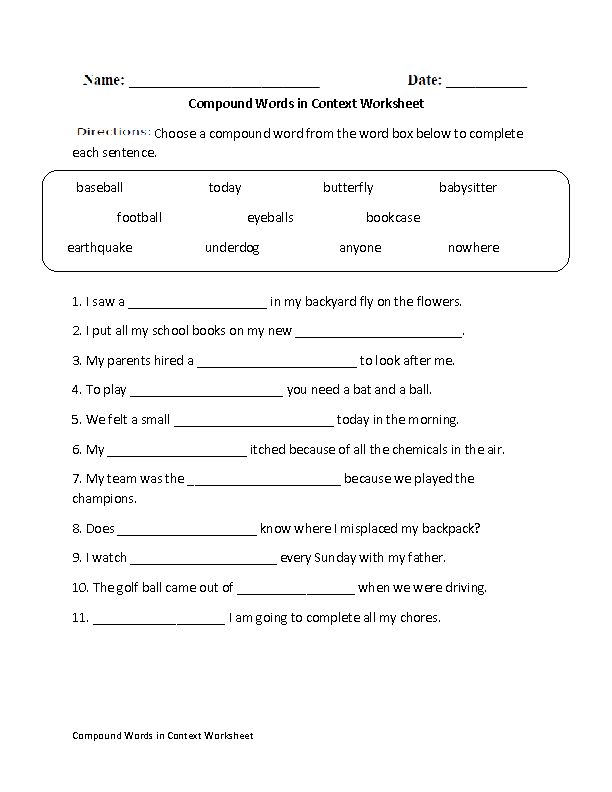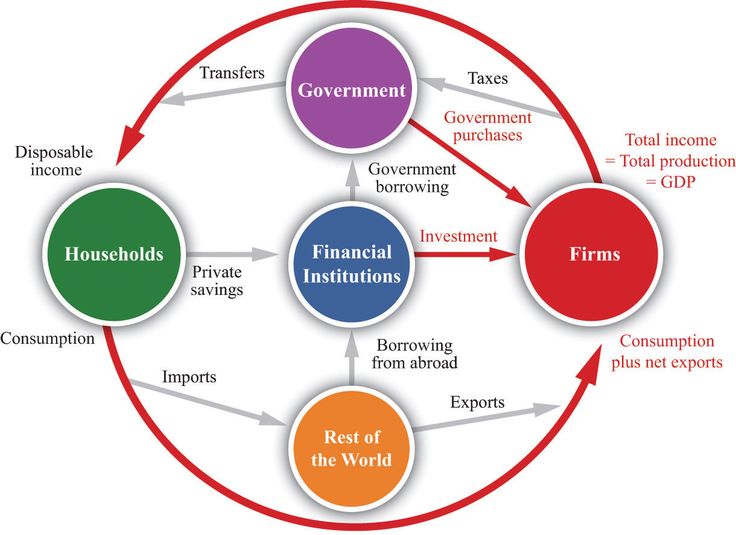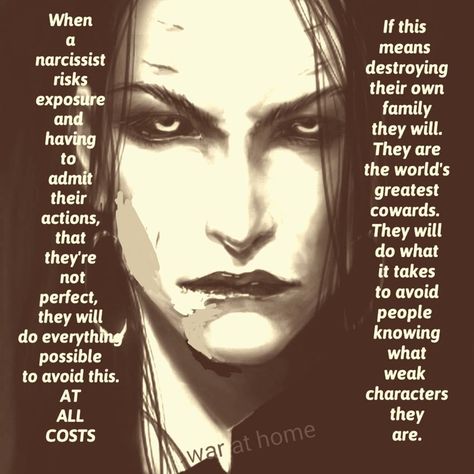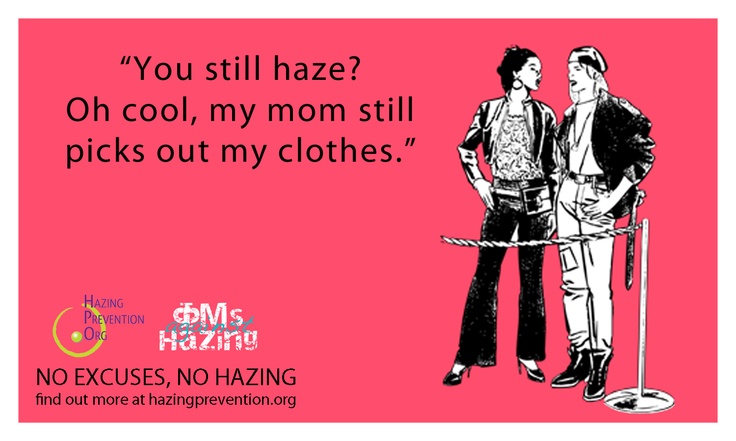Can low self esteem cause depression
The Relationship Between Low Self-Esteem and Depression
Your self-esteem plays a role in how you feel, particularly when it comes to mood disorders like depression.
Boosting your self-esteem can help you cope with depression as you find your treatment plan of choice. How you view yourself can affect your mental health and day-to-day life.
“Low self-esteem, characterized by feelings of worthlessness and incapability, is often seen in people seeking therapy for depression,” says Thomas A. Veeder, MD, a psychiatrist and professor of psychiatry at the Oregon Health and Science University School of Medicine in Portland, Oregon.
Sometimes feelings of low self-esteem stem from your early childhood, including traumatic events, genetics, or your caregivers’ styles of parenting.
There’s evidence that low self-esteem may be a learned behavior, and learning ways to boost your self-esteem may help symptoms of depression.
You may find that when your symptoms of depression worsen, so do your thoughts about yourself.
A 2019 study of Vietnamese students looked at the prevalence of low self-esteem and its relation to depression and other mental health problems. The findings support previous research that says people with low self-esteem may be at greater risk for depression.
The results showed that low self-esteem may contribute to anxiety, depression, and thoughts of self-harm among adolescents.
Students who reported low self-esteem had nearly six times the odds of being at risk of depression and four times the odds of having depressive symptoms when compared to other students.
Low self-esteem is so common that it’s often overlooked as a factor related to depression, despite all the research that shows they are commonly connected. They often “coexist and reinforce each other,” says Veeder.
People with low self-esteem tend to catastrophize everyday events or interactions, which may affect how they see themselves.
Also, guilt can be a driving factor for depression, says Veeder.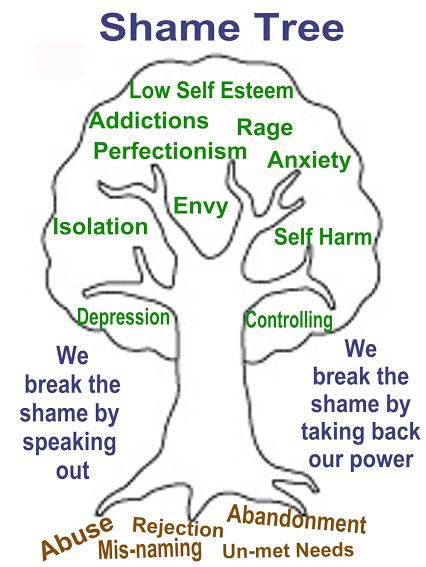 “The emotional conditions inherent in depression such as guilt, hopelessness, and apathy can lead to despair.”
“The emotional conditions inherent in depression such as guilt, hopelessness, and apathy can lead to despair.”
“If someone with low self-esteem starts to feel guilty about something, it reinforces their depression,” says Veeder. “Then their depression — when they can’t get out of bed — can reinforce their guilt and their low self-esteem.”
Low self-esteem tends to present itself in times of crisis, which may trigger symptoms of depression. Low self-esteem does not cause depression, but it’s quite common during periods of depression.
“There are both conscious and unconscious ways people can experience low self-esteem,” says Veeder. Life events such as a breakup of a relationship, losing a game, or not getting a promotion can all reinforce a low self-esteem.
“Those are the more conscious ways that people experience it and those can kind of ebb and flow in people’s lives,” says Veeder.
On an unconscious level, feelings of worthlessness, inferiority, or low self-esteem may fade into the back of someone’s mind.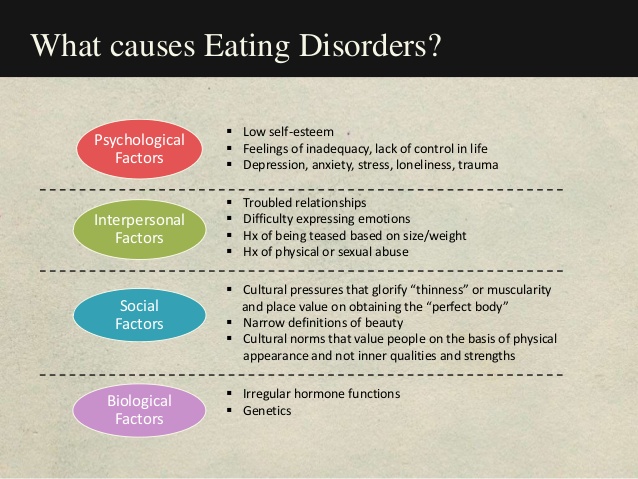 You may not notice your self-esteem until you’re dealing with a traumatic event or a difficult time in your life.
You may not notice your self-esteem until you’re dealing with a traumatic event or a difficult time in your life.
“Sometimes we can move away from it. We can get past it and we can feel better about ourselves for a brief period of time,” explains Veeder. “But when something happens — a big crisis or transition — sometimes those feelings get all activated again.”
Having low self-esteem can affect our ability to perform and achieve in different aspects of our lives, says Ryan Howes, a clinical psychologist in Pasadena, California, and author of “Mental Health Journal for Men”.
“If we feel worthless and unable to change our circumstances for the better, we’re feeding into the hopeless/helpless belief that can lead to or amplify depression,” wrote Howes in an email interview.
“Challenges in life are inevitable. If we don’t feel equipped to face those challenges, or don’t feel like we deserve to overcome them, life feels hopeless and helpless, which is a hallmark of depression. ”
”
It’s worth exploring how your opinion of yourself shapes how you respond in a crisis.
Consider these questions that center on your relationship to self-esteem:
- When something goes wrong do I always assign blame to myself?
- Do I assign blame to everyone else and never myself?
These questions target how you respond during times of crisis. Assigning blame and worsening your opinion of yourself both may occur when you have a tendency to catastrophize during uncertain times.
“In addition, overly critical and negative self-talk, physical avoidance of mirrors or attempts to disappear in public, being passive about sharing your opinion or neglecting self-care can all be markers of someone with low self-esteem,” says Howes.
Finally, low self-esteem may interact with your relationships with stress and substance use, including substance use disorder (SUD).
Many people find benefits through the use of cell phone app-based meditation or mindfulness exercises to combat low self-esteem.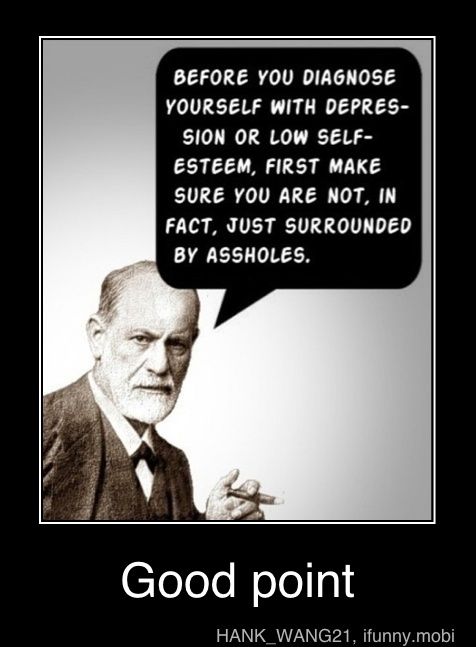
Consider these self-care activities to help you with low self-esteem or symptoms of depression:
- yoga
- massage
- taking a hot soak
- socializing
- maintaining positive relationships
- meditation
- visiting places of worship
- reading from spiritual or religious texts
- prayer
- community involvement
- seeking peace and finding joy
Moreover, a recent study indicates that cognitive behavioral therapy (CBT) shows promise in helping you overcome low self-esteem and symptoms of depression.
CBT works by identifying, tackling, and changing unhelpful thinking so that your mindset, behaviors, and overall well-being improve with practice.
For people working to improve self-esteem, it’s helpful to stop putting things in “buckets of good and bad or right and wrong,” advises Veeder.
Instead, he advises, “just be curious about why this happened or why did I feel this way because you’ll learn a lot more about yourself with this approach.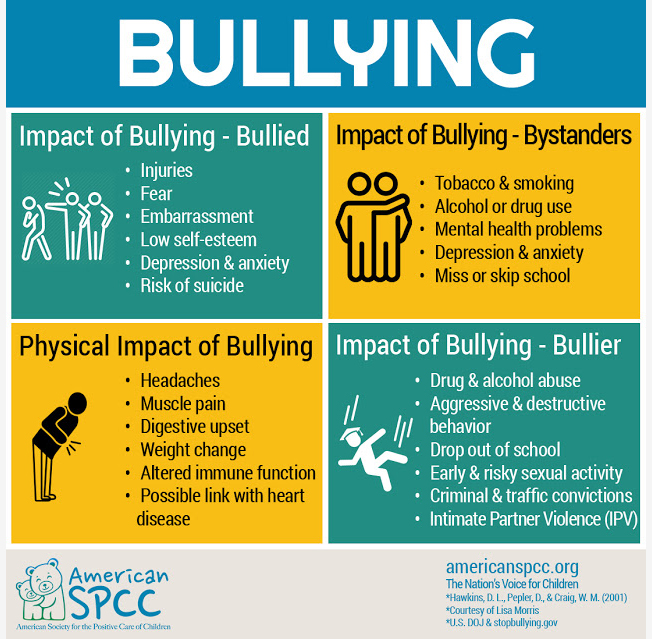 ”
”
“As human beings, we all have some inherent value and worth, even if we’ve made mistakes in the past,” says Howes. “Therapy helps you identify blockages to self-esteem, embrace the worth you have, and work to develop an even more meaningful life.”
Talking to a therapist can help you sort through any feelings of inadequacy and uncover the source of low self-esteem. This can set you on a path toward self-understanding, self-compassion, and self-love.
The Relationship Between Low Self-Esteem and Depression
Your self-esteem plays a role in how you feel, particularly when it comes to mood disorders like depression.
Boosting your self-esteem can help you cope with depression as you find your treatment plan of choice. How you view yourself can affect your mental health and day-to-day life.
“Low self-esteem, characterized by feelings of worthlessness and incapability, is often seen in people seeking therapy for depression,” says Thomas A. Veeder, MD, a psychiatrist and professor of psychiatry at the Oregon Health and Science University School of Medicine in Portland, Oregon.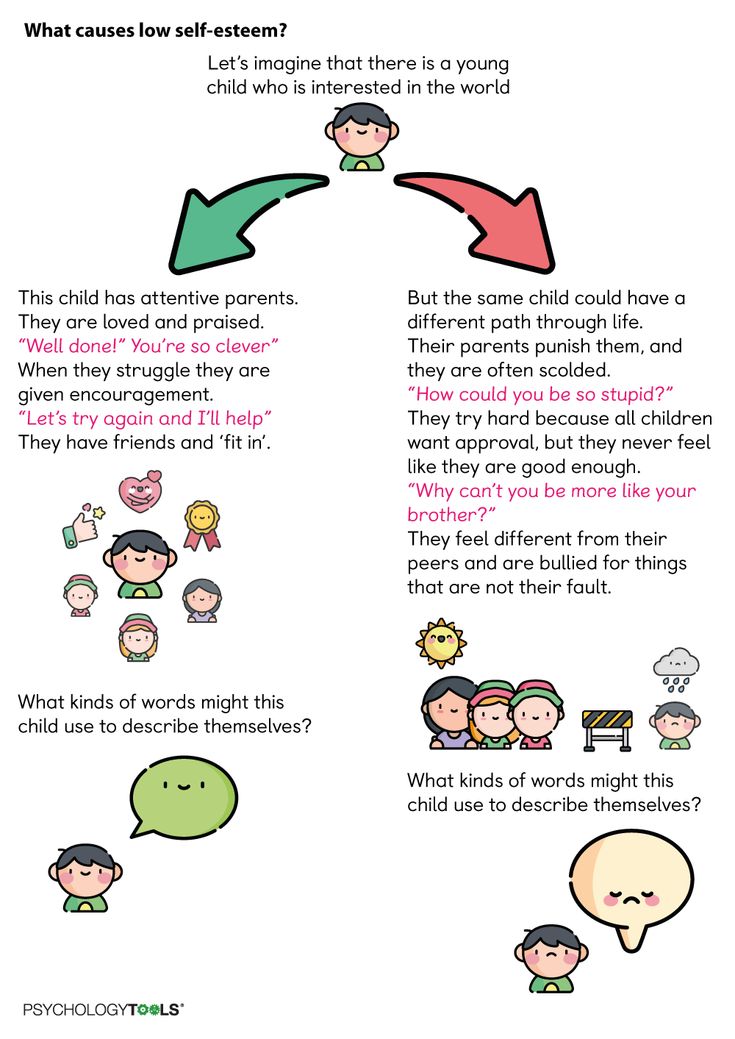
Sometimes feelings of low self-esteem stem from your early childhood, including traumatic events, genetics, or your caregivers’ styles of parenting.
There’s evidence that low self-esteem may be a learned behavior, and learning ways to boost your self-esteem may help symptoms of depression.
You may find that when your symptoms of depression worsen, so do your thoughts about yourself.
A 2019 study of Vietnamese students looked at the prevalence of low self-esteem and its relation to depression and other mental health problems. The findings support previous research that says people with low self-esteem may be at greater risk for depression.
The results showed that low self-esteem may contribute to anxiety, depression, and thoughts of self-harm among adolescents.
Students who reported low self-esteem had nearly six times the odds of being at risk of depression and four times the odds of having depressive symptoms when compared to other students.
Low self-esteem is so common that it’s often overlooked as a factor related to depression, despite all the research that shows they are commonly connected.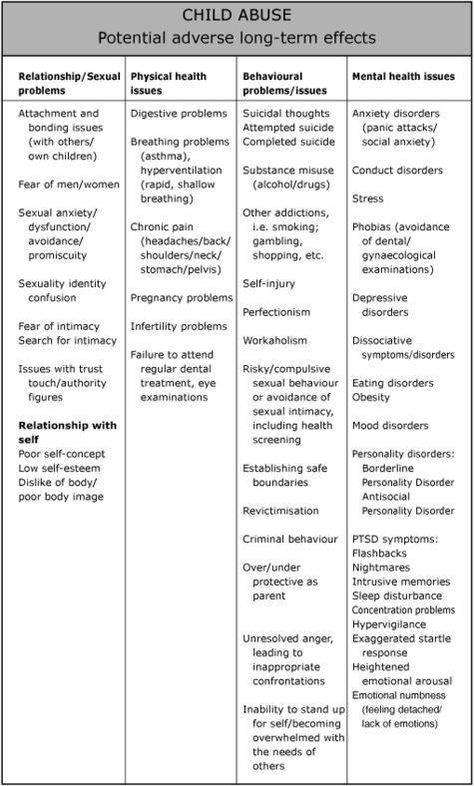 They often “coexist and reinforce each other,” says Veeder.
They often “coexist and reinforce each other,” says Veeder.
People with low self-esteem tend to catastrophize everyday events or interactions, which may affect how they see themselves.
Also, guilt can be a driving factor for depression, says Veeder. “The emotional conditions inherent in depression such as guilt, hopelessness, and apathy can lead to despair.”
“If someone with low self-esteem starts to feel guilty about something, it reinforces their depression,” says Veeder. “Then their depression — when they can’t get out of bed — can reinforce their guilt and their low self-esteem.”
Low self-esteem tends to present itself in times of crisis, which may trigger symptoms of depression. Low self-esteem does not cause depression, but it’s quite common during periods of depression.
“There are both conscious and unconscious ways people can experience low self-esteem,” says Veeder. Life events such as a breakup of a relationship, losing a game, or not getting a promotion can all reinforce a low self-esteem.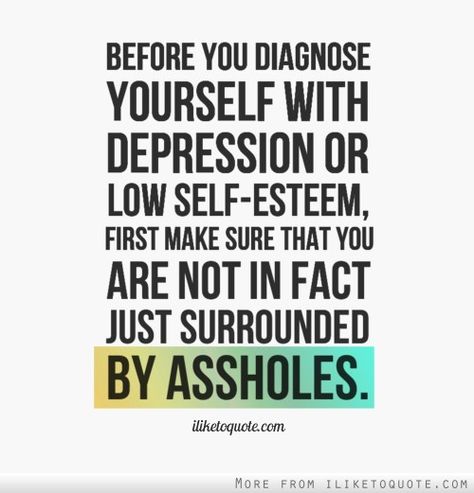
“Those are the more conscious ways that people experience it and those can kind of ebb and flow in people’s lives,” says Veeder.
On an unconscious level, feelings of worthlessness, inferiority, or low self-esteem may fade into the back of someone’s mind. You may not notice your self-esteem until you’re dealing with a traumatic event or a difficult time in your life.
“Sometimes we can move away from it. We can get past it and we can feel better about ourselves for a brief period of time,” explains Veeder. “But when something happens — a big crisis or transition — sometimes those feelings get all activated again.”
Having low self-esteem can affect our ability to perform and achieve in different aspects of our lives, says Ryan Howes, a clinical psychologist in Pasadena, California, and author of “Mental Health Journal for Men”.
“If we feel worthless and unable to change our circumstances for the better, we’re feeding into the hopeless/helpless belief that can lead to or amplify depression,” wrote Howes in an email interview.
“Challenges in life are inevitable. If we don’t feel equipped to face those challenges, or don’t feel like we deserve to overcome them, life feels hopeless and helpless, which is a hallmark of depression.”
It’s worth exploring how your opinion of yourself shapes how you respond in a crisis.
Consider these questions that center on your relationship to self-esteem:
- When something goes wrong do I always assign blame to myself?
- Do I assign blame to everyone else and never myself?
These questions target how you respond during times of crisis. Assigning blame and worsening your opinion of yourself both may occur when you have a tendency to catastrophize during uncertain times.
“In addition, overly critical and negative self-talk, physical avoidance of mirrors or attempts to disappear in public, being passive about sharing your opinion or neglecting self-care can all be markers of someone with low self-esteem,” says Howes.
Finally, low self-esteem may interact with your relationships with stress and substance use, including substance use disorder (SUD).
Many people find benefits through the use of cell phone app-based meditation or mindfulness exercises to combat low self-esteem.
Consider these self-care activities to help you with low self-esteem or symptoms of depression:
- yoga
- massage
- taking a hot soak
- socializing
- maintaining positive relationships
- meditation
- visiting places of worship
- reading from spiritual or religious texts
- prayer
- community involvement
- seeking peace and finding joy
Moreover, a recent study indicates that cognitive behavioral therapy (CBT) shows promise in helping you overcome low self-esteem and symptoms of depression.
CBT works by identifying, tackling, and changing unhelpful thinking so that your mindset, behaviors, and overall well-being improve with practice.
For people working to improve self-esteem, it’s helpful to stop putting things in “buckets of good and bad or right and wrong,” advises Veeder.
Instead, he advises, “just be curious about why this happened or why did I feel this way because you’ll learn a lot more about yourself with this approach.”
“As human beings, we all have some inherent value and worth, even if we’ve made mistakes in the past,” says Howes. “Therapy helps you identify blockages to self-esteem, embrace the worth you have, and work to develop an even more meaningful life.”
Talking to a therapist can help you sort through any feelings of inadequacy and uncover the source of low self-esteem. This can set you on a path toward self-understanding, self-compassion, and self-love.
Low self-esteem and depression | HLPS.ru
The human personality is very complex. Everyone has distinctive qualities that affect how a person manages his life. Some people can handle difficult situations well and keep moving forward, but for others it becomes unbearable. You can also list people whose coping style may be less effective and may lead to the development of serious psychiatric disorders (such as depression).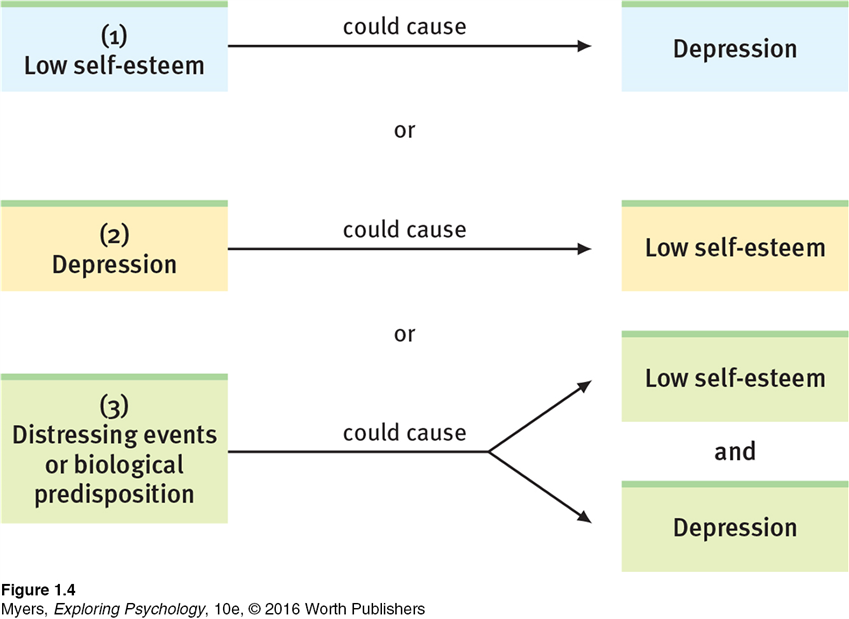 nine0003
nine0003
1. Factors influencing the formation of personality
The human personality develops throughout his life. This is influenced by various factors - internal and external. The difficulties and obstacles that arise and how a person copes with them in life play a very important role. Personal development is also inextricably linked with the family environment, such an influence greatly affects his future life as a child. Parents should be role models for their children, support and surrounding them with feelings is necessary for positive and friendly relations. Helping a child helps him grow up in an atmosphere of security and self-confidence. nine0003
2. Self-esteem and self-esteem
These values are built on the basis of the words of the closest people and the person's own self-esteem. Surrounding the child with love is very important for the child to be confident in his own abilities. Failure to meet the child's basic needs (feelings of security, love, tenderness, etc.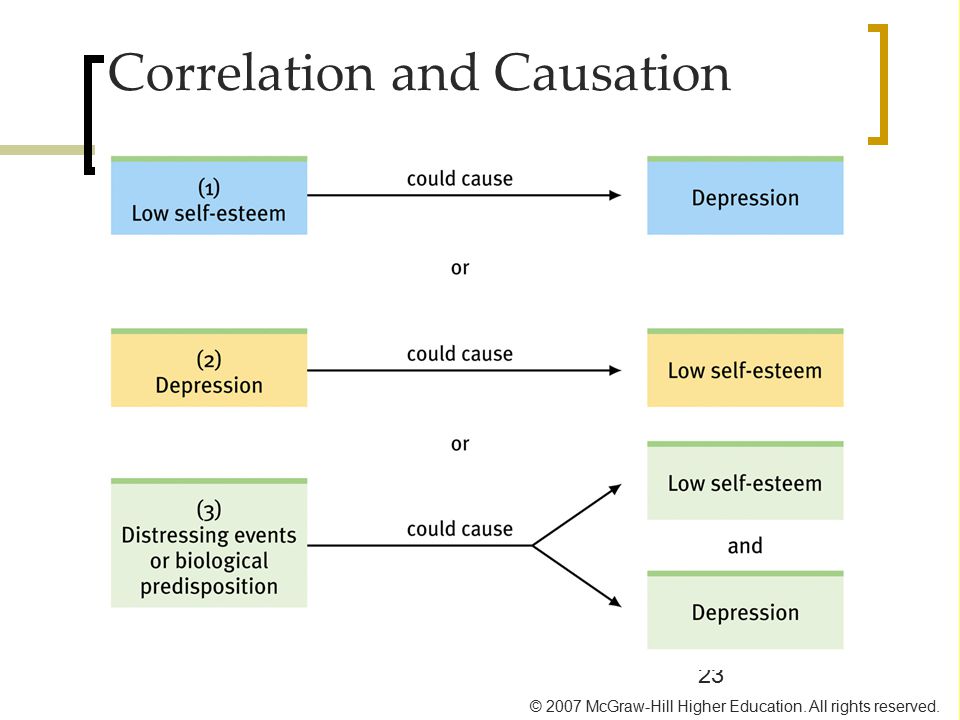 ), making fun of him or imposing excessive demands on him may lead to a distorted self-image in the future. The dependence of one's own self-esteem on outsiders' opinions can lead to a number of difficulties, and, as a result, to the development of mental disorders, including depression. nine0003
), making fun of him or imposing excessive demands on him may lead to a distorted self-image in the future. The dependence of one's own self-esteem on outsiders' opinions can lead to a number of difficulties, and, as a result, to the development of mental disorders, including depression. nine0003
3. Psychological consequences of low self-esteem
Changes in self-esteem from external factors can lead to psychological problems. Low self-esteem can lead to isolation from social life.
Avoiding confrontation, underestimating one's own accomplishments, and not taking action are signs of low self-esteem that lead to detrimental consequences.
4. The effect of low self-esteem on depression
Low self-esteem and the difficulties associated with it can cause depression. Depression is preceded by characteristic disorders (poor self-esteem and feelings, a negative approach to the future). These primary disorders affect many areas of human life. They manifest themselves in thinking, such a person does not have a concrete idea of himself and reality. The occurrence of such mood problems is a secondary disorder, which, in combination with primary disorders, leads to the development of depression. nine0003
They manifest themselves in thinking, such a person does not have a concrete idea of himself and reality. The occurrence of such mood problems is a secondary disorder, which, in combination with primary disorders, leads to the development of depression. nine0003
Low self-esteem leads to negative assessments of both oneself and reality. A person forms the perception of the world and the scheme of relationships with other people in a negative way. Past problems and a growing sense of inferiority cause us to withdraw into ourselves and experience many difficulties. These problems can lead to the development of mood disorders leading to the development of depression.
Mental health care and medication may not solve all the problems of a patient with low self-esteem. It is also worth giving him access to psychotherapy and appropriate support. A good solution is individual psychotherapy or so-called support groups. Psychotherapy will support pharmacological treatment and reinforce positive behavior patterns. It may also allow the patient to increase self-esteem and make him independent of the opinions of the environment. nine0003
It may also allow the patient to increase self-esteem and make him independent of the opinions of the environment. nine0003
More details on the site psyo.su
5 reasons that cause depression and low self-esteem
Author Kluber To read 5 min. Views 5.1k. Posted by
Studies have clearly shown that if you have low self-esteem, you become more prone to depression. This is obvious because your negative emotions are directed at yourself. And sooner or later you will not be able to get out of the vicious circle. Low self-esteem can lead to much more serious consequences in the long run. nine0003
The best way to improve your self-esteem is to start thinking positively. You must gradually and carefully examine the factors that cause you to have low self-esteem. What exactly makes you sad, as a result of which you fall into depression. You can fool yourself and think that nothing can be changed, but in fact, you are quite capable of controlling your thinking.
Rewire your brain to positive thinking in order to achieve happiness. Instead of weighing yourself down with negative, destructive thoughts, you can find a path to success. Below we describe a few things that often cause low self-esteem and, as a result, depression. nine0003
“Aim for the highest goals and don't devalue yourself. Realize that you can achieve it. You should see that many people struggle with depression and other problems every day. Not only you. You are not alone.” – Holly Holm
1. Perfectionism
No matter how many times you hear that perfectionism can take you to the next level in development, you only limit your opportunities because of too high and almost impossible goals. Perfectionists are often unable to deal with low self-esteem and depression, anxiety, and self-deprecating thoughts. You cannot be satisfied with yourself if you set the bar too high for yourself. nine0055 Perfectionism can lead to fear of new things because you will be afraid of failure.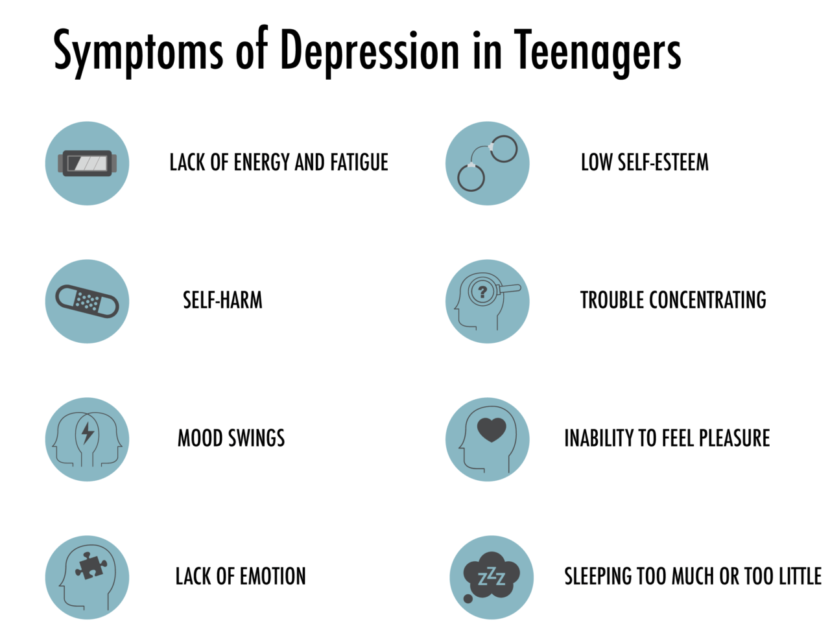 The best way to avoid this is to recognize that failure is just a tool for effective learning. People learn best from their mistakes. If you stop being afraid of them, you will see that they are not deadly. Focus on more and remember that there are far more important things in life. And not everything in this world is perfect.
The best way to avoid this is to recognize that failure is just a tool for effective learning. People learn best from their mistakes. If you stop being afraid of them, you will see that they are not deadly. Focus on more and remember that there are far more important things in life. And not everything in this world is perfect.
2. Self-projection
This thing is very common in people suffering from anxiety, low self-esteem and depression. When you face all this, you consider yourself a failure. And you start to think that others see it too. You begin to doubt any relationship with people and suspect that each of them hates you. It has to do with self-doubt because you can't know what others think of you. Just try to let go of that mindset and realize that you are just as important to society as your friends. In this way, you will understand that your self-esteem issues are related only to you, and not to others. nine0003
3. Meeting expectations
It's a fact that you can't please everyone.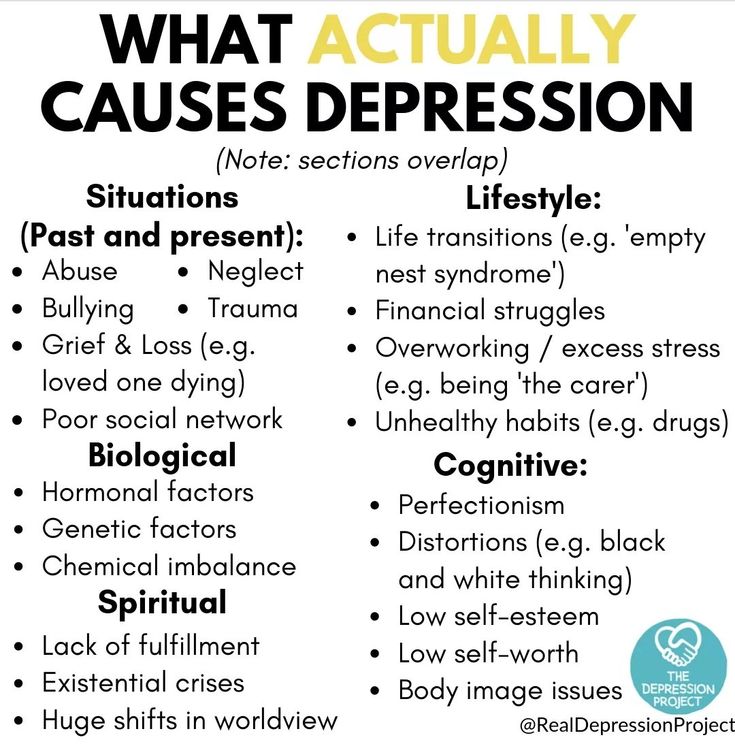 But if you have low self-esteem, you will constantly try to live up to the expectations that others have built for you. Because you need support and recognition of your own importance. You don’t know how to say “no” because you don’t want to put a person in an uncomfortable position or vice versa. Always remember that your life is in your hands and only you decide how to manage it. You must put yourself first. True friends will understand this and will not reproach you. If you try to please everyone, sooner or later someone will take advantage of this for their own benefit. Just accept that confrontation with society is a necessary evil. Don't let other people's desires cloud your life. nine0003
But if you have low self-esteem, you will constantly try to live up to the expectations that others have built for you. Because you need support and recognition of your own importance. You don’t know how to say “no” because you don’t want to put a person in an uncomfortable position or vice versa. Always remember that your life is in your hands and only you decide how to manage it. You must put yourself first. True friends will understand this and will not reproach you. If you try to please everyone, sooner or later someone will take advantage of this for their own benefit. Just accept that confrontation with society is a necessary evil. Don't let other people's desires cloud your life. nine0003
4. Guilt
Each of us makes mistakes. And we all face certain problems every day. People with low self-esteem and a tendency to depression cannot cope with guilt because of their own failures. Every time you will remind yourself of this or that failure. What kind of self-esteem can we talk about in this case? When you judge yourself for something you failed to do, you deliberately lower your self-esteem.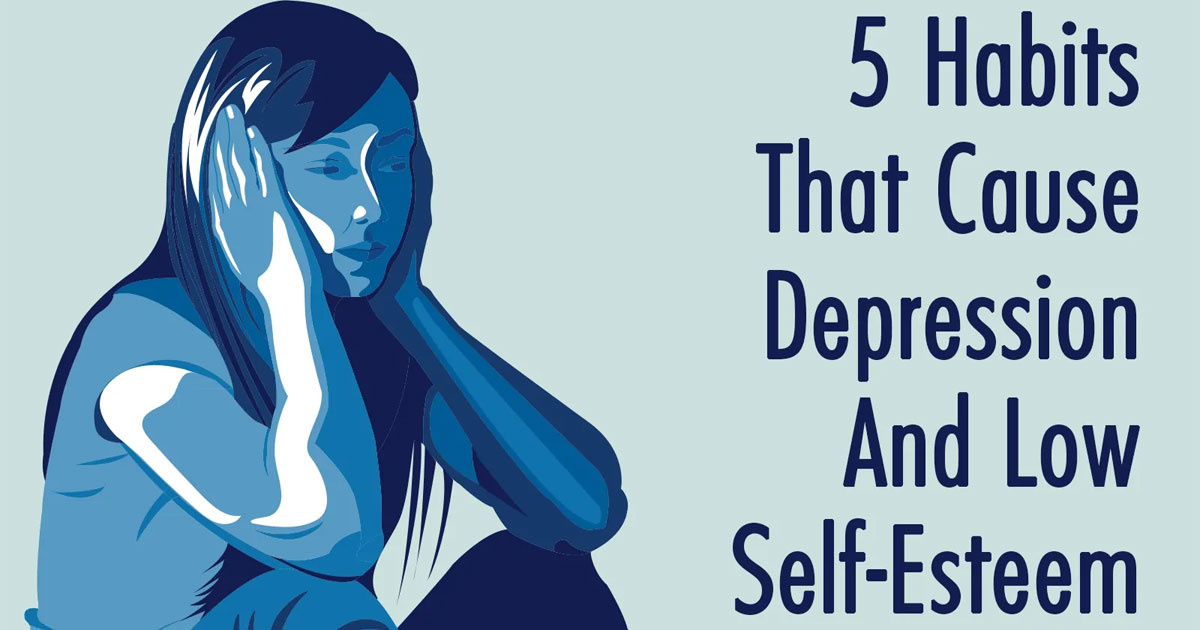 Learn to forgive yourself and those around you. Learn from this lesson to become kinder and happier. nine0003
Learn to forgive yourself and those around you. Learn from this lesson to become kinder and happier. nine0003
5. Regret
Life in the past never helped anyone. You cannot afford to live on past failures and beat yourself up over missed opportunities. This feeling of regret will haunt you constantly and lead you to deep depression. Therefore, direct your thoughts in a positive direction to become productive now. So that you can achieve even more than you could in the past.
Remind yourself of everything you did a long time ago. Realize that life is not just black and white. It has many more colors and shades. And in any situation, even unsuccessful for you, there are positive moments. In any case, you can remind yourself of the mistake in order to avoid it in the future. Why not? Ultimately, you will learn to look only forward and realize that it is impossible to live in the past. Because you can't bring back the past. nine0003
Summary
Learning to accept yourself is what you must do.
